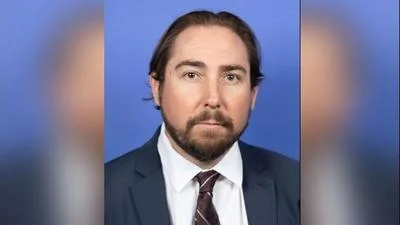Sen. Mike Crapo (R-ID) says more audits could be on the way for Americans with the Inflation Reduction Act’s $80 billion allocation to hire 87,000 IRS workers. | Kelly Sikkema/Unsplash
Sen. Mike Crapo (R-ID) says more audits could be on the way for Americans with the Inflation Reduction Act’s $80 billion allocation to hire 87,000 IRS workers. | Kelly Sikkema/Unsplash
Sen. Mike Crapo (R-ID) said Americans should "brace for more audits" on the heels of the Inflation Reduction Act’s $80 billion allocation to hire 87,000 IRS workers, a funding allotment supported by Democratic Sen. Mark Kelly of Arizona.
In a Twitter post, Crapo warned that new IRS audits would target Americans of “all income levels," and there would be more investigations and tax enforcement by the new IRS workers.
"Taxpayers deserve better services, not broken promises," Crapo said in the Aug. 29 post.
The Inflation Reduction Act of 2022 was passed on Aug. 7 by a 51-50 vote across party lines. All 50 Democrat senators, including Kelly, but none of the GOP senators, voted for the bill. The tie was broken with a vote from Vice President Kamala Harris, according to senate.gov.
Americans making less than $75,000 per year will receive the majority of IRS audits, according to Fox Business. An analysis by Senate Republicans that was published on Aug. 9 found that the IRS would perform 1.2 million more audits on tax returns with the added staff. The IRS is expected to increase revenue by $124 billion, according to the report. IRS Commissioner Charles Rettig has denied that audits would increase under the Inflation Reduction Act, Fox reported.
According to The Washington Post's Fact Checker, however, the GOP's claim of 87,000 audits is misleading and "lacks significant context." as it comes from a May 2021 Treasury Department report that shows $80 billion in funding would allow for the hire of 86,852 new employees over the next 10 years. According to the Treasury report, new employees could be added in groups of 7,000-12,000 every year, and they would "conduct audits, improve informational technology and enhance customer service."
The IRS has been underfunded for a long time, the Post said, which leads to longer turnaround time to process tax returns, as well as underdeveloped technology. The $46 billion would be allocated to “enforcement,” but The Washington Post said Treasury officials haven't specified how many enforcement agents would be needed.
More than half of all IRS employees will be eligible to retire in the next five years as well, meaning others will be required to fill the staffing shortage, the Post's Fact Checker said.
Despite Republican claims that the Inflation Reduction Act will "double the size" of the IRS, the actual staffing increase would be closer to 25-30%, according to the Fact Checker.
Meanwhile, House Republicans tweeted that the first priority of the new Congress "when we take back the House" in November would be to "repeal the 87,000 IRS agents Joe Biden and House Democrats hired."
Karen Kerrigan, president and CEO of the Small Business and Entrepreneurship Council, told The Center Square that “there is no doubt that boosting IRS audit capabilities through a vast increase in the hiring of 87,000 new staff focused on this effort "will hit small businesses the hardest.
“The tax data shows that it is small businesses of moderate means, not ‘the wealthy,’ that are targeted most frequently," she said.
The IRS had 78,661 full-time employees in fiscal 2021, The Center Square said, meaning the addition of 87,000 new IRS employees would more than double the roster. Kerrigan also said that many small business owners don't have the financial capability to respond to IRS inquiries by hiring accountants or lawyers.
“Dealing with crushing inflation and the economic downturn is unbearable enough for small business owners, without having this type of threat hanging over their heads,” she said.
According to data from the Small Business Administration (SBA), as of 2021, there are 611,097 small businesses making up 99.5% of all Arizona businesses. The 1.1 million small business employees comprise 42.9% of all Arizona workers, the SBA reported.
The IRS typically targets households earning $25,000 per year or less, according to CBS News, which is five times more than others. CBS also reported that audits are going down with a reduced number of IRS employees.
"It's unbelievable, the focus and targeting on the poorest families," Susan Long, co-director of Transactional Records Access Clearinghouse (TRAC) and a professor of managerial statistics at Syracuse University, told CBS. "It's five times the rate for everyone else — does this really make sense?"






 Alerts Sign-up
Alerts Sign-up